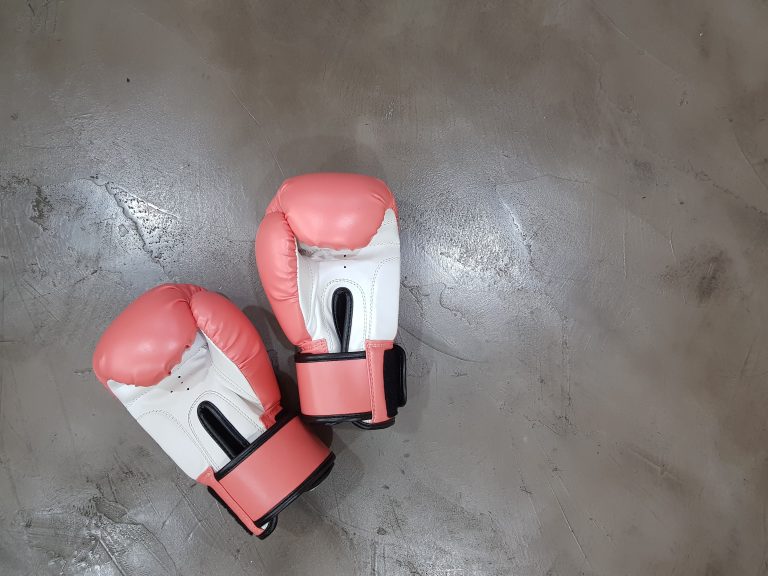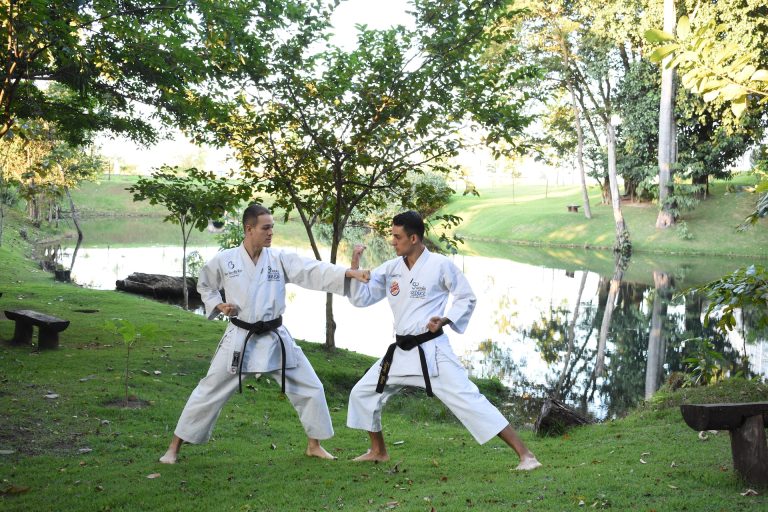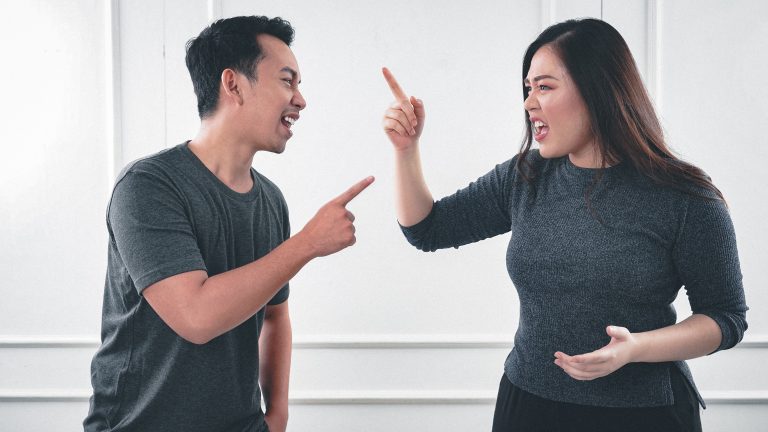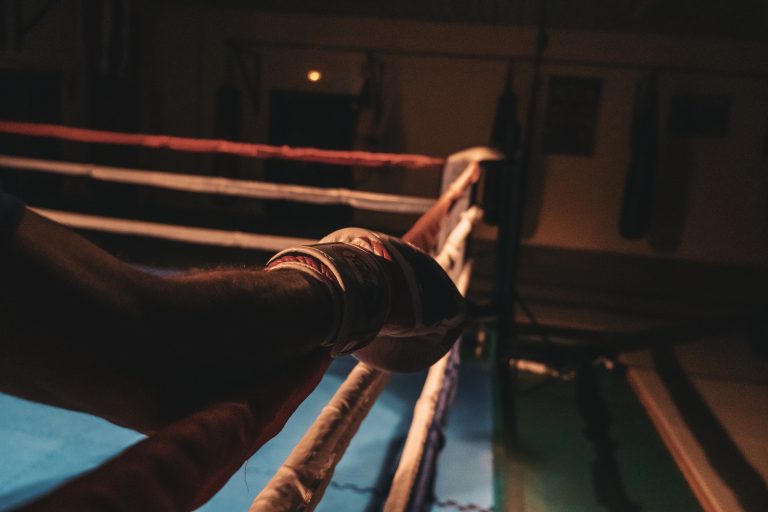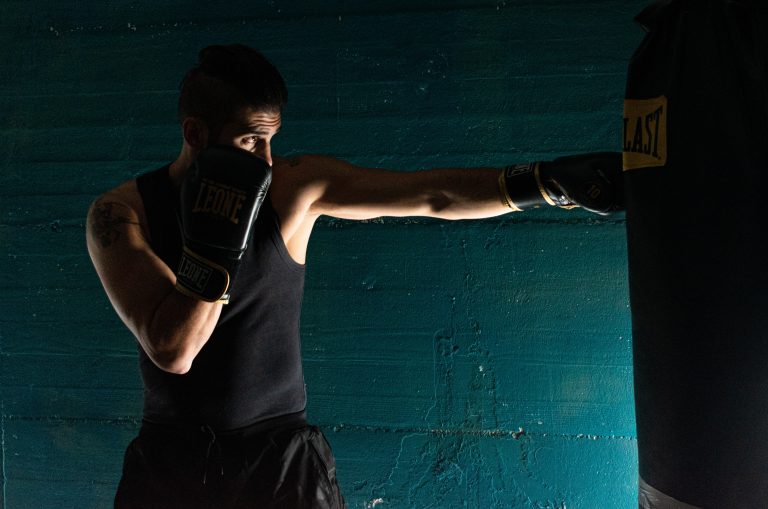Why is Karate a Unique and Beneficial Martial Art?
There’s no questioning the popularity of martial arts—their inspiring, ancient traditions, physical and mental training, and spiritual lessons are powerful, empowering activities. Often though, when we think of martial arts, we envision people doing those Hollywood-style kicking and punching moves and fighting off hordes of bad guys. But martial arts are far more than just hand-to-hand combat.
One of the oldest and best-known martial arts is karate. Karate’s intricate moves, powerful stances, and strict discipline make it a great choice for dedicated students of any age. But what makes karate different from other martial arts, and what are some of the unique benefits it offers? Let’s explore the answers to these questions and more.
The History of Karate
Karate’s origins most likely lie in Chinese kenpo, and go back centuries. Around the 1600s, Chinese kenpo was brought over to Okinawa (a group of islands off the coast of Japan) and gradually merged with existing systems of self-defense. The result was a new Okinawan style of self-defense, which included a wide range of blocks, punches, and kicks.
The word “karate” itself is a combination of two Japanese kanji characters: ‘kara’, which means empty, and ‘te’, which means hand. This is actually quite meaningful—karate is often referred to as “the way of the empty hand” because it emphasizes the use of one’s body as a means of defense rather than relying on weapons.
The Benefits of Karate
Karate isn’t just about self-defense. Although learning the techniques to protect yourself is certainly a great benefit of karate training, there are many additional advantages associated with practicing this martial art.
Physical Benefits
Karate is an excellent way to boost cardiovascular health and physical fitness. Training involves bodyweight exercises, stretching, and sparring—all of which get your heart rate up, work your muscles and joints, and improve balance and coordination. Karate also helps develop core strength, flexibility, speed and agility. In other words—karate makes you strong both inside and out!
Mental Benefits
Karate teaches respect, discipline, focus, and concentration—all of which translate into personal growth in many aspects of life. Practicing karate also improves self-confidence, as it focuses not only on physical abilities but also on mental toughness. Karate has been proven to be an effective stress reliever since it requires its practitioners to stay focused and in control of their emotions during training sessions.
Spiritual Benefits
Karate training is more than just physical exercise—it’s also a way to achieve spiritual enlightenment. It encourages self-reflection and growing wisdom, as well as the ability to recognize one’s strengths and weaknesses. As a result, it offers a deeper understanding of one’s self and one’s place in the world.
The Unique Aspects of Karate
Karate stands out from other forms of martial arts because of its different components. Here are some of its unique aspects:
- Kata: Kata (or “form”) are carefully choreographed movements which are used to practice and refine specific techniques or combinations. Kata can range from very simple to very complex, depending on the level of the student.
- Bunkai: Bunkai (or “analysis”) is an essential part of learning karate. It involves breaking down each move in a kata to understand its intended purpose.
- Kihon: Kihon (or “basics”) are basic techniques such as blocks, strikes, and kicks that are practiced repeatedly to build strength, power and accuracy.
- Sparring: When two or more people ‘spar’, they practice techniques against each other in a controlled environment in order to simulate real life combat.
Finding the Right School & Choosing the Right Style
When selecting a martial arts school, it’s important to choose one that focuses on safety first and foremost. Ask around or take advantage of online reviews to find out which schools have a good reputation for providing quality instruction in a safe environment.
Once you’ve got your shortlist of schools, you may need to decide which type of karate you want to study. There are several different styles of karate, each with its own approach and benefits. Here are some popular options:
- Shotokan: Considered the ‘original’ style of karate, Shotokan is characterized by powerful linear techniques that emphasize striking over blocking.
- Goju-Ryu: This style focuses on breathing exercises and softer ‘circular’ movements which incorporate both offensive and defensive techniques.
- Uechi-Ryu: This style was founded in China in the early 1900s and features strong linear movements with plenty of kicks mixed in.
Final Thoughts
Karate is a powerful martial art that offers physical, mental, and spiritual benefits. Its long history and complex moves have made it popular around the world—especially among those looking for enhanced discipline, strength and confidence. Although there are many different styles of karate to choose from, finding the right school with experienced instructors is essential for getting the most out of your training. With determination and dedication, anyone can become proficient in karate and take advantage of its unique benefits!
Why is Karate a Unique and Beneficial Martial Art?
Karate is one of the most popular martial arts in the world, and there are several reasons for its popularity. It is known for its powerful strikes, acrobatic kicks, and disciplined training. What makes Karate unique is its focus on self-defense, discipline, and physical fitness.
Karate originated in Japan in the Ryukyu Islands in the 19th century. It was influenced by Chinese martial arts and the local Okinawan martial arts. Today, Karate is practiced all over the world as a martial art or a sport.
In this blog post, we will answer the most frequently asked questions about Karate and why it is a unique and beneficial martial art.
What are the benefits of practicing Karate?
There are several benefits of practicing Karate, and here are some of them:
1. Builds self-confidence: Karate teaches self-defense and self-discipline, which can help build self-confidence.
2. Improves physical fitness: Karate involves rigorous physical training, which improves strength, flexibility, and overall fitness.
3. Enhances mental focus: Karate training requires mental focus and concentration, which can help improve focus outside of training.
4. Teaches self-defense: Karate teaches effective self-defense techniques and strategies to protect oneself in real-life situations.
5. Provides a sense of community: Karate classes are often conducted in group settings, creating a sense of community and camaraderie among students.
What are the different types of Karate?
Karate has several styles and schools, and each has its own distinct techniques, training methods, and philosophies. Here are some of the most popular types of Karate:
1. Shotokan Karate: This style of Karate is one of the oldest and most popular. It focuses on stances, strikes, and kicks and emphasizes strong and precise movements.
2. Goju-Ryu Karate: This style of Karate combines hard and soft techniques and focuses on both physical and mental conditioning.
3. Wado-Ryu Karate: This style of Karate emphasizes fluid and natural movements and incorporates grappling and throwing techniques.
4. Shito-Ryu Karate: This style of Karate is a blend of hard and soft techniques and emphasizes breathing control and body positioning.
5. Kyokushin Karate: This style of Karate is known for its full-contact sparring and intense physical conditioning.
Is Karate only for self-defense?
While Karate is primarily known for its self-defense techniques, it is also a sport and a form of physical exercise. Karate competitions are held all over the world, and they involve both contact and non-contact forms of sparring. Karate also involves physical conditioning exercises that can improve overall fitness and well-being.
What is the role of discipline in Karate?
Discipline is an essential part of Karate training. Students must follow strict rules and guidelines during training, and failure to do so can result in penalties or disqualification. This discipline helps students develop self-control, respect for others, and a strong work ethic.
Do I need to be physically fit to practice Karate?
Karate training can be rigorous and physically demanding, but it is designed to accommodate students of all fitness levels. Beginners will typically start with simple exercises and techniques and gradually build up to more complex movements and drills.
Is Karate suitable for children?
Karate is a suitable martial art for children, as it can help them develop physical fitness, discipline, self-confidence, and self-defense skills. Karate classes for children are typically structured and age-appropriate, with a focus on building self-esteem, respect for others, and teamwork.
Conclusion
Karate is a unique and beneficial martial art that can improve physical fitness, mental focus, self-defense, and overall well-being. Whether you are looking for a form of exercise or a way to learn self-defense, Karate is an excellent choice. With its many styles and schools, there is something for everyone in Karate.
Inhaltsverzeichnis

